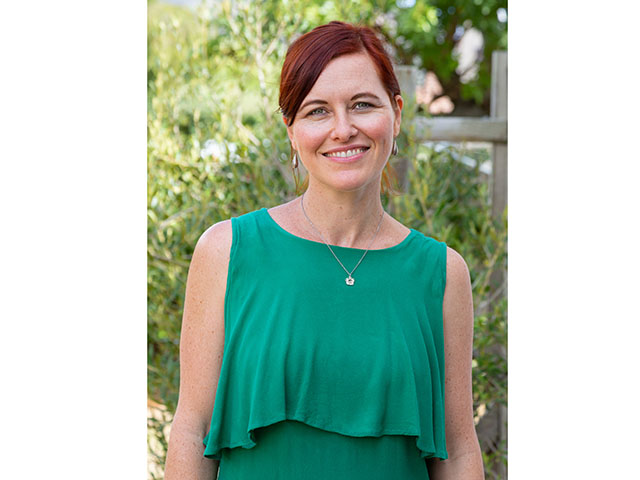Telemedicine: The health revolution we have been waiting for?
By Ryan Noik 6 August 2021 | Categories: feature articles
The Covid-19 pandemic has ushered in a great deal of turmoil on a global scale, bringing sickness to many, grief to others, and upending almost every industry and business affected by a new normal. However, if there has been one silver lining, it is that the pandemic has shone a bright light on medical advances. Understandably, the importance of vaccines is one such advance, and the role telemedicine has to play in defining health in the 21st century is another.
At a recent event with Abbott, the company unpacked how telemedicine is addressing another illness that claims too many lives – diabetes. While it may come as a surprise to some, there is another fierce health scourge that claims too many lives in South Africa. According to a recent report by the Economist Intelligence Unit (EIU), supported by Abbott, diabetes was revealed as being the second leading cause of death after Tuberculosis (TB) in South Africa.
Exacerbating matters is the fact that diabetes is one of the most prevalent non-communicable conditions in South Africa, noted Bernard Brisolier, Business Unit Director for Abbott’s diabetes care business in Africa.

Dr Bruno Pauly
Quantifying the problem
As to how much of a problem the disease is globally, consider this: at present 463 million people have diabetes worldwide, and that is expected hit 700 million by 2045. Even worse, half of those with diabetes do not know they have it, while 70% who do know of their diabetes do not achieve desired treatment outcomes. Mortality wise, diabetes has been as deadly as Covid in years past – the disease accounted for four million deaths globally in 2017, while Covid has accounted for 4.24 deaths globally in the past 18 months.
As explained by the Centre for Disease Control, diabetes is the condition in which the body does not properly process food for use as energy. Most of the food we eat is turned into glucose, or sugar, for our bodies to use for energy. Ordinarily, the pancreas makes insulin which enables glucose to get into the cells of our bodies.
However, those with diabetes have a condition whereby their body either doesn't make enough insulin or can't use its own insulin as well as it should. This causes sugars to build up in their blood, and unmanaged this leads to heart disease, blindness, kidney failure, and lower-extremity amputations.
Unfortunately, for those suffering from diabetes, the threat of the worst of Covid-19 was magnified.
“A large pool of people have diabetes and other non-communicable diseases (> 30% of the global population) and they are especially vulnerable to COVID-19,” added Professor David Segal, Paediatric Endocrinologist.
In South Africa, an analysis of COVID-19 patients in the Western Cape found that almost half of those who died had diabetes as a comorbidity. In addition, people living with uncontrolled diabetes, including those using insulin, are more likely to develop more severe COVID-19 symptoms if they become infected. Thus, as a precaution, the role of telemedicine for people living with diabetes is instrumental for an adequate management and better clinical outcomes.

Professor David Segal
The telemedicine imperative
The company explained that COVID-19, combined with the seriousness of diabetes led to an essential shift to remote patient consultations (telehealth) and telemedicine in the country. It is important to know that a condition such as diabetes requires those who have it have regular check-ins with healthcare professionals and close monitoring.
The reason for the rapid shift in 2020 is attributed to the direct impact of the COVID-19 lockdown and subsequent restrictions, which limited in-person interactions in hospitals and clinics in order to limit the spread of transmissions. This saw a rise in digital literacy, high technology adoption rates and more patients being monitored via virtual calls, WhatsApp and mobile phone apps.
“Before COVID-19, telemedicine, in terms of remote consultations with patients, essentially did not exist in South Africa,” noted Dr Bruno Pauly, from the Department of Diabetes and Endocrinology at the Chris Hani Baragwanath Academic Hospital. “There was no infrastructure, no legal framework and the Medical Aids schemes, which cover the 15% of the population under the private health system, would not pay for such consultations, until March 2020,” he continued.
Technology to the rescue
The good news is technology can have a significant positive impact in more easily managing diabetes. For example, Brisolier explained that Abbott’s FreeSyle Libre enables people living with diabetes to better monitor their glucose levels without the need to prick their finger multiple times in a day. “By simply scanning their compatible smartphone over a coin-sized sensor worn on the back of their upper arm, users can measure their glucose levels and voluntarily share valuable information with their treating doctors through secure cloud-based digital tools, like LibreView. FreeStyle Libre system improves average glucose levels over three months, time-in-range and clinical outcomes, whilst reducing the need for in-person hospital appointments,” he elaborated.
While there is currently no cure all for diabetes, doctors are also starting to see the use of new innovations in diabetes care, which can complement telemedicine services, such as smart glucose monitors which have made continuous glucose monitoring available to people living with diabetes in the private sector. These devices collect data on glucose levels, per the consent of the user, which is shared with healthcare professionals in real-time.
“Telemedicine offers solutions to deliver healthcare services at scale, at the right time and at any location. Especially in this time of the pandemic, we need to use technology to create “health care with no address. We cannot build enough hospitals, or spend enough money, to treat everyone with legacy hospital-based systems of care. The mobile phone is a disruptive technology, and that is where the hospital will move to. Telemedicine can take healthcare to the people rather than the other way around. It has potential to improve outcomes, reduce costs, increase convenience and customer satisfaction,” he stressed.
“Not only will electronic patient records enable patient outcomes to be better tracked to improve care, they are also likely to help engage nurses in primary care as they will be able to see patient improvements from their direct interventions,” added Bridget McNulty, co-founder of the NGO Sweet Life Diabetes Community.

Bridget McNulty
Rays of Hope
During the online event, McNulty, along with the rest of the panel, stressed that diabetes does not have to be a death sentence. Type-2 diabetes is preventable, by following a balanced, healthy diet and doing regular exercise, while keeping oneself in a normal weight range, and minimising health-defeating habits like smoking and excessive alcohol consumption.
For those that do develop it – genetics do play a role here – it can be managed so that it does not develop and lead to serious side effects – like blindness or limb amputations. Nor does it have to preclude one from having a rich and active life. McNulty urged those who know people with diabetes, or have colleagues, friends or intimates suffering from the disease, to remember that diabetes sufferers are not solely defined by their disease – and remember that diabetes patients are someone’s wife, mother, brother, son or friend – and treat them accordingly.
As for what the future holds post the pandemic, or as lockdown and quarantine measures recede, the report projects that we will see new hybrid models of care emerge, and a balance will be struck by alternating patients between in-person and virtual appointments.
Most Read Articles

Have Your Say
What new tech or developments are you most anticipating this year?



